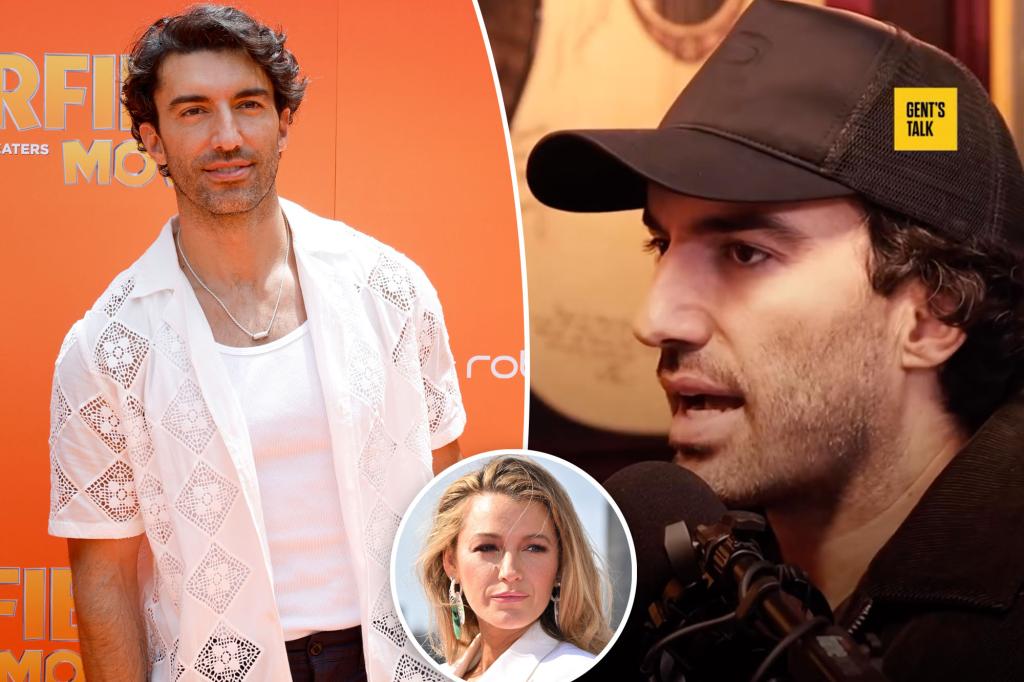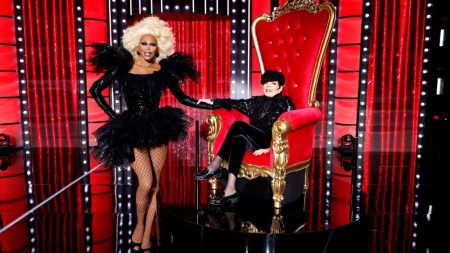Justin Baldoni, the director and co-star of the highly anticipated film It Ends With Us, has been open about his struggles with emotional stress and burnout, particularly ahead of his legal battle with co-star Blake Lively. In a recent episode of the Gent’s Talk podcast, recorded in November 2024, Baldoni shared a vulnerable account of his mental state, revealing that he had reached out to close friends and colleagues to express his anxiety and exhaustion. He described an intense year filled with professional success but also significant personal and emotional strain, which took a toll on both him and his family. Baldoni, who is known for his roles in Jane the Virgin and his work as a filmmaker, admitted that juggling multiple responsibilities—such as running his production company, Wayfarer Studios—sometimes overwhelmed him, despite his passion for the work.
Baldoni, 41, described how he was struggling with sleep and feeling less than his full self, acknowledging that he was “a work in progress.” He emphasized the importance of radical sincerity and authenticity, even as he navigated challenges that many can relate to. His candid remarks highlighted the pressures of success and the ease with which one can become swept up in the demands of a high-profile career. Despite these struggles, Baldoni remained committed to his work and the positive impact it has on others. However, as the year progressed, his professional and personal life became further complicated by the legal battle with Blake Lively.
The tension between Baldoni and Lively became public knowledge after fans noticed that Lively did not participate in interviews or attend the premiere of It Ends With Us alongside Baldoni. The situation escalated when Lively filed a sexual harassment complaint against him in December 2024, which also accused Baldoni and his agents of orchestrating a smear campaign to damage her reputation. The complaint included serious allegations that were later reported by The New York Times, such as claims that production leadership had to intervene to prevent Baldoni from sharing inappropriate content with Lively and discussing her weight. These allegations were deeply concerning and further complicated an already fraught situation.
In response to these claims, Baldoni denied any wrongdoing and took legal action, suing Lively for defamation. He also filed a libel lawsuit against The New York Times for their reporting on the matter, arguing that the article relied heavily on Lively’s narrative without sufficiently considering contradictory evidence. The Times defended its reporting, stating that it was based on an extensive review of original documents, including text messages and emails. The legal battle between the two stars continued to intensify when Baldoni filed an additional lawsuit in January 2025, seeking $400 million in damages from Lively and her husband, Ryan Reynolds, who had been involved in key discussions about the film’s script.
Baldoni’s legal team, led by attorney Bryan Freedman, has worked tirelessly to defend his reputation and refute the allegations made by Lively. As part of their defense strategy, Baldoni released raw footage of him and Lively dancing on set, as well as a website containing their alleged text messages, in an effort to provide context and counter her claims. Despite these efforts, the ongoing legal disputes have taken a significant toll on Baldoni, both emotionally and financially. Freedman has emphasized the devastating impact of these lawsuits on his client, noting that the prolonged legal battle has been a substantial burden.
As the legal proceedings continue, with a trial date set for March 2026, the situation remains unresolved, leaving both Baldoni and Lively in a difficult and uncertain position. The case serves as a reminder of the complexity and sensitivity of workplace dynamics, particularly in high-stakes industries like Hollywood, where professional and personal boundaries can often become blurred. Ultimately, the outcome of this legal battle will not only shape the careers of those involved but also contribute to broader conversations about accountability, transparency, and the consequences of actions in the public eye.









